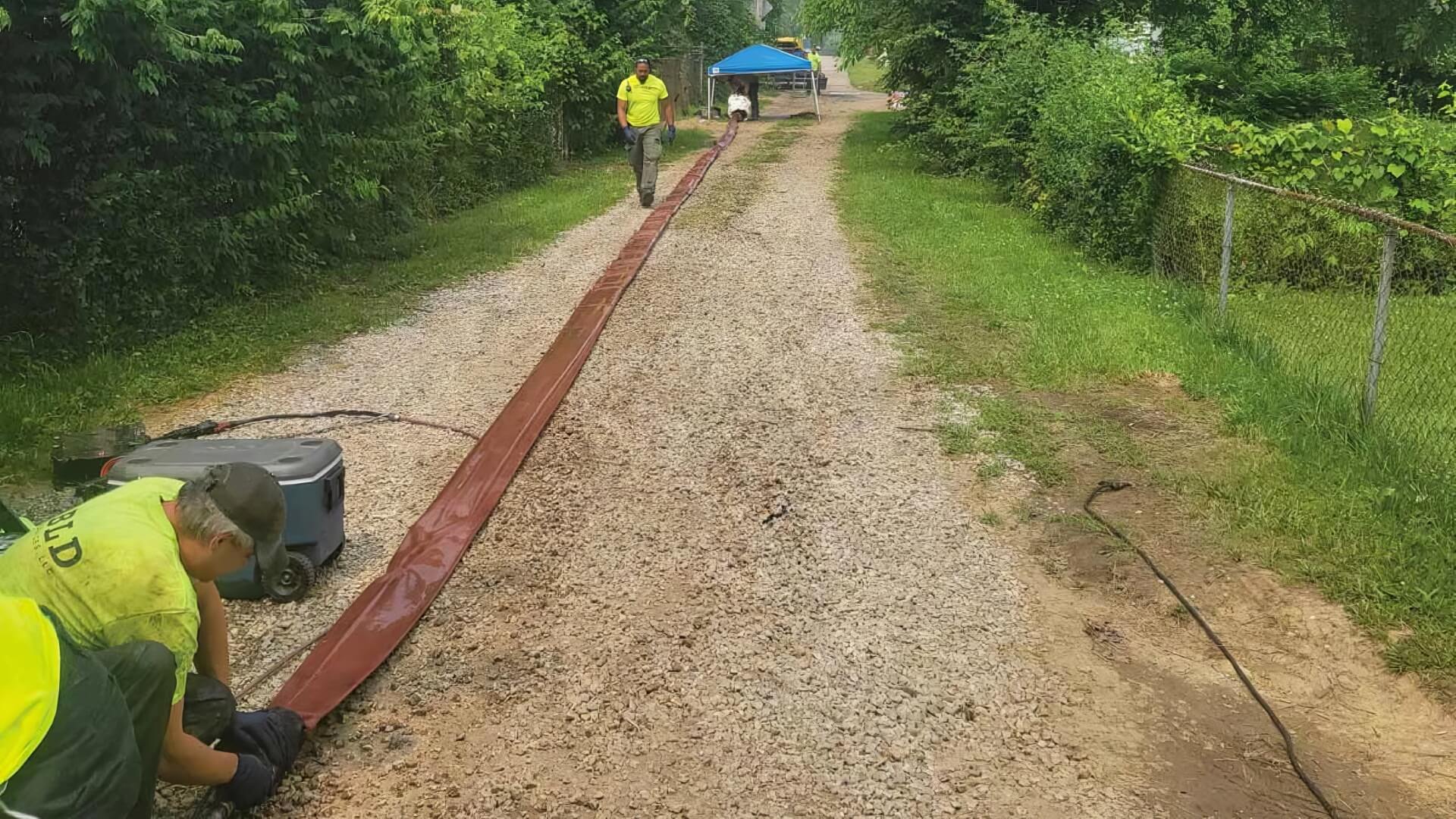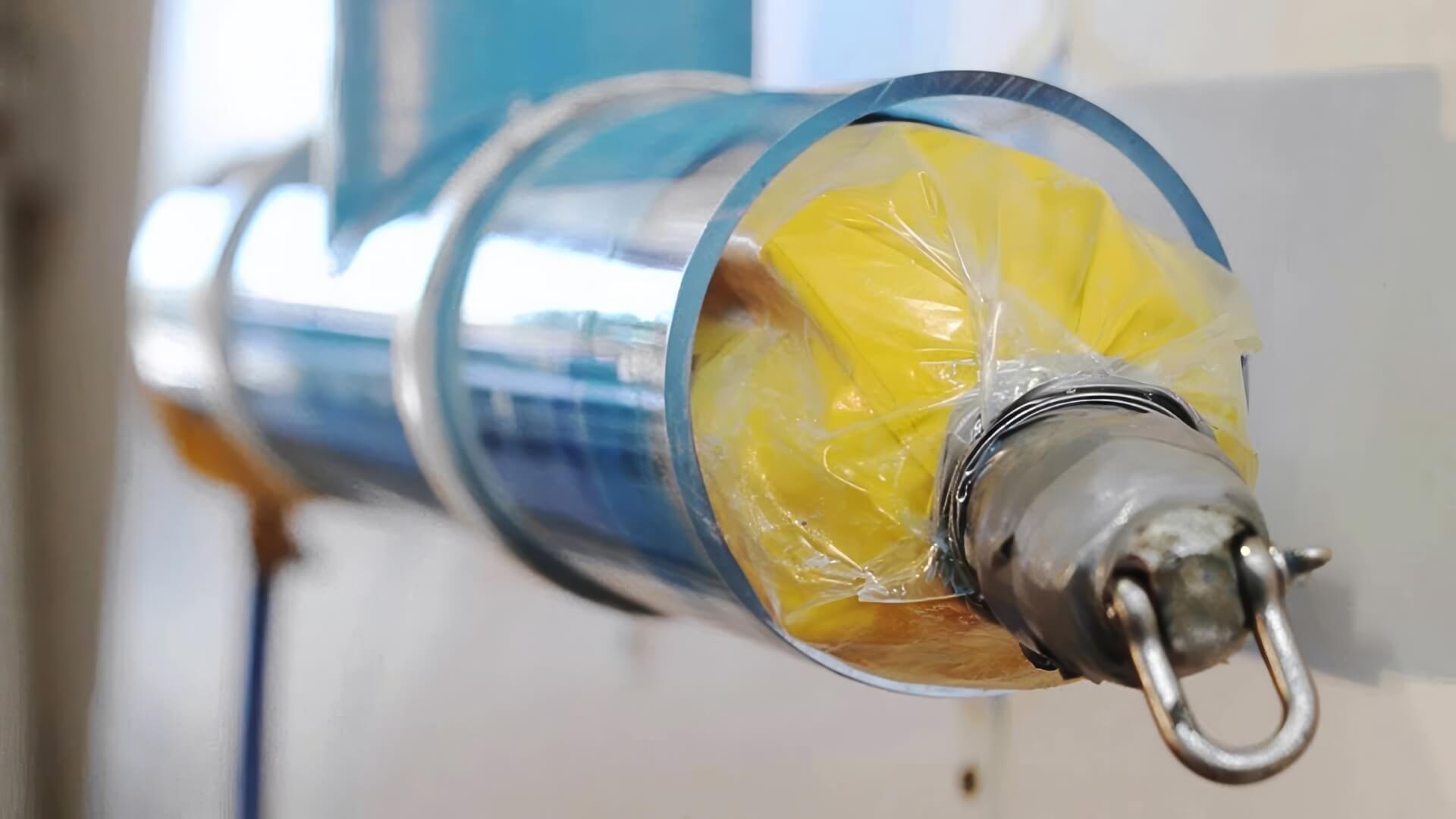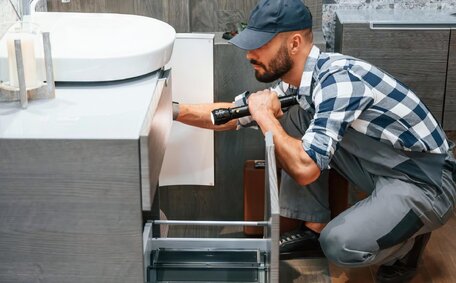Clearing a clogged drain in your home can be a frustrating challenge. Food, grease, hair, and other debris can clog up over time, eventually clogging up your drain and preventing water from flowing. When your kitchen sink or bathtub starts to fill with backed-up water, it’s time to take action and remove the clog.
Padstow Plumbing offers multiple solutions to clear a blocked drain, ranging from simple homemade remedies to professional services.
We’ll guide you through various methods to clear blocked drains and explain when to seek our licensed plumbers’ help with advanced tools like cable augers.
By the end, you’ll know exactly how do clear your clogs and get drains flowing freely again while avoiding damage to your plumbing system. To learn how to unclog a drain for optimal flow, flush the drain with a mixture of table salt and baking soda to tackle minor blockages.
Identifying the Location and Cause of the Clog
Before diving into solutions on how to clear a blocked drain, here’s how to ascertain the precise location of the blockage. This can give you a good indication of where the clog may be situated.
Check which drains, such as the kitchen sink or floor drain, are not clearing effectively to identify potential clogs.
There are also some key signs of a clog in specific parts of your plumbing:
- When you notice water ebbing away more slowly in your sink, place a wet rag to cover drain and focus any plunging efforts to remove obstacles likely occupying space further down the drain pipe.
- Should you fill sink with water and observe a refusal to drain, this often indicates a severe build up creating a clog right under the overflow plate, lodged in the sink trap.
- When water spills back from the sink drain, a deeper blockage might be what you need to address to clear the clog.
Determining the cause is key to aiding drain clear situations in your plumbing before taking action. Common culprits include:
- Food waste - Grease, oil, coffee grounds, and food scraps often stick to pipes.
- Hair - Strands get tangled and accumulate over time.
- Soap residue - Scum from personal care products and detergents.
- Tree roots - Can invade and break pipes underground.
If multiple drains can be observed backing up, behaving more like liquid drain reservoirs than conduits, it’s prudent to suspect a larger main line blockage such as tree roots or a collapsed pipe permitting debris accumulation. Our Padstow plumbers have the tools to fully diagnose main drain clogs.
Trying Household Solutions First
Before calling a professional, it can be worthwhile to try clearing your blocked drain yourself using common household items. For anyone attempting to clear blocked paths in their drainage, these accessible solutions using a cup baking soda can also offer an excellent starting point.
Pour boiling water directly into the drain as an easy method to address minor blockages.
The effervescent chemical reaction helps to break up clog material, dislodging accumulated gunk effectively.
Start by pouring half a cup of vinegar and baking soda into the drain; let it sit for 20-30 minutes before continuing with further cleaning.
For tackling bathroom sink clogs and learning how to use a snake drain, start by using drain stopper removal, sprinkle some bicarb soda, then let sit momentarily prior to employing a wire coat hanger or zip tie to extract hair and debris. Just remember to reattach the drain stopper once finished.
Implementing these household solutions is typically a safe, cost-effective, and direct tactic for unclogging drains before considering professional aid. If repeated efforts fail to clear a severe clog, it’s wise to call our professionals at Padstow Plumbing.
Using a Plunger
A plunger can be an effective tool in addressing minor obstructions in bathroom or kitchen sinks. Choose a plunger with a bell-shaped cup and a sturdy handle, either wooden or folding.
Seal over drain with the plunger snugly and employ brisk plunging action several times, pushing water down the pipe while ensuring the plunging action aids its movement.
Plunging compresses air and pushes water, breaking up clogs and stirring up nuisances within your plumbing. You may hear gurgling sounds as the clog loosens and moves further down the pipe toward a resolution. Afterward, flush the drain with hot water, then with cold to wash away any remaining debris.
A plunger may not be effective for dense or deeply located clogs within your pipes. Excessive force while plunging could damage pipes or disrupt seals around the overflow hole. If attempts to plunge and wait a few minutes then try again have not resolved the issue, consider applying different methods highlighting how to unclog stubborn obstructions before contacting Padstow Plumbing.
Certain households opt for specialised closet auger flange-style plungers for toilets, setting them apart from the standard sink tools, adding a layer of home comfort similar to a familiar cuppa near water heaters. Use this vigorous plunging technique to help unclog drain lines in your toilet.
Employing Physical Removal Methods
If household remedies fail to clear a clogged sink, physically removing the obstruction may be necessary. Useful tools for this include wire coat hangers, zip ties, and a reliable plumbers snake.
For a DIY approach to shower drain clogs, you can use a straightened wire coat hanger to draw out hair and soap scum. Carefully manoeuvre the tip of the hanger towards the drain, twisting gently to ensnare debris which you can pull out. Alternatively, insert a snake into drain passages with a drain auger, which functions akin to a professional snake, to clutch at obstinate blockages.
With careful rotation and steady retrieval, you can move clog through the pipe using your drain snake to navigate through obstructions delicately. While you snake the drain, be careful not to mar the pipes or inadvertently shove the obstruction deeper.
Severe main drain line clogs may require larger gas-powered mechanical snakes that can extend up to 30 metres to reach tree roots or collapsed sections. Since such equipment may not be accessible to the average homeowner, contact Padstow Plumbing when simpler methods fail.
Considering Commercial Drain Cleaners
Chemical drain solutions available in shops often claim swift relief from blockages due to their potent ingredients. However, many professional plumbers advise using less abrasive methods rather than harsh chemicals for clearing blocked drains.
Consider these cautions when using commercial drain cleaners:
- They contain corrosive ingredients that can damage pipes over time.
- PVC and metal pipes are especially vulnerable to corrosion.
- Inhaled fumes from these cleaners can be toxic and harmful.
That said, when used according to instructions, commercial cleaners can dissolve organic matter-based clogs. Look for low-VOC, eco-friendly enzyme cleaner options when possible. Only use small amounts for short periods.
For severe clogs or main drain issues, seek assistance from your local plumber at Padstow Plumbing, resolute in clearing your drain without resorting to pouring perilous chemicals down. Our licenced professionals have the tools and expertise to clear any drain safely.
Calling a Professional Plumber
Even after trying all the household solutions and physical removal methods, you may find it challenging to keep your clogs from recurring and drains from backing up. At this juncture, if you don’t know how to proceed further, it’s advisable to call for professional plumbing assistance.
As licenced experts, the team at Padstow Plumbing have highpressure water jetting tools like hydro-jetting equipment and advanced CCTV drain cameras to clear even the most stubborn clogs. We determine if tree roots, collapsed pipes, or other major issues are blocking Flow using thorough diagnostics.
Signs it’s time to call Padstow Plumbing include:
- Water is pooling around sinks or tubs, indicating a likely drain blockage, refusing to go down the drain despite using a wet rag for a targeted plunging and trying chemical cleaners
- Kitchen or bathroom sink drains have very slow Flow even after attempts to clear debris
- Toilets overflow or are perpetually clogged despite plunging
- Main waste lines are backing up to multiple fixtures
- Outdoor drain lines have heavy sludge but won’t clear after flushing
Don’t continue struggling with flooded sinks or keep pouring harmful chemicals down backed-up drains. Our professional drain cleaning services can quickly clear any clogs and diagnose underlying problems.
For prompt assistance, contact the drain specialists at Padstow Plumbing today:
Call: 1300 349 338 Email: jobs@padstowplumbingservices.com.au
We provide round-the-clock emergency services and can swiftly dispatch trucks for urgent issues. Learn more about our guarunteed work and book an appointment by getting in touch.
Conclusion and Preventative Measures
Dealing with a clogged drain can be frustrating, but we have outlined several methods to clear blockages, ranging from household remedies to professional services. Key methods covered include:
- Identifying location and cause - Pay attention to which drains are backing up and possible culprits like hair, grease, soap scum.
- Trying household solutions - Employ hot water, baking soda, vinegar, or a plunger for cost-effective initial attempts.
- Physical removal - Fish out debris from bathroom sinks with wire hangers or feed drain snakes carefully.
- Avoiding harsh chemicals - Exercise caution with commercial drain cleaners which can damage pipes.
- Calling professionals - Contact licenced experts like Padstow Plumbing for advanced diagnostics and hydro-jetting when DIY methods fail.
The best way to avoid future clogs is prevention. We recommend:
- Regularly pouring hot water mixed with dish soap down drains to clear grease and hair.
- Using drain catchers and filters in sinks can prevent debris from causing clogs.
- Being mindful not to pour fats or solids down your garbage disposal or drains.
- Having main sewer pipes professionally inspected for tree roots or breaks.
This guide aims to provide you with all the information to free your drains from clogs. Don’t hesitate to call the specialists at Padstow Plumbing if problems persist - 1300 349 338 or jobs@padstowplumbingservices.com.au.






